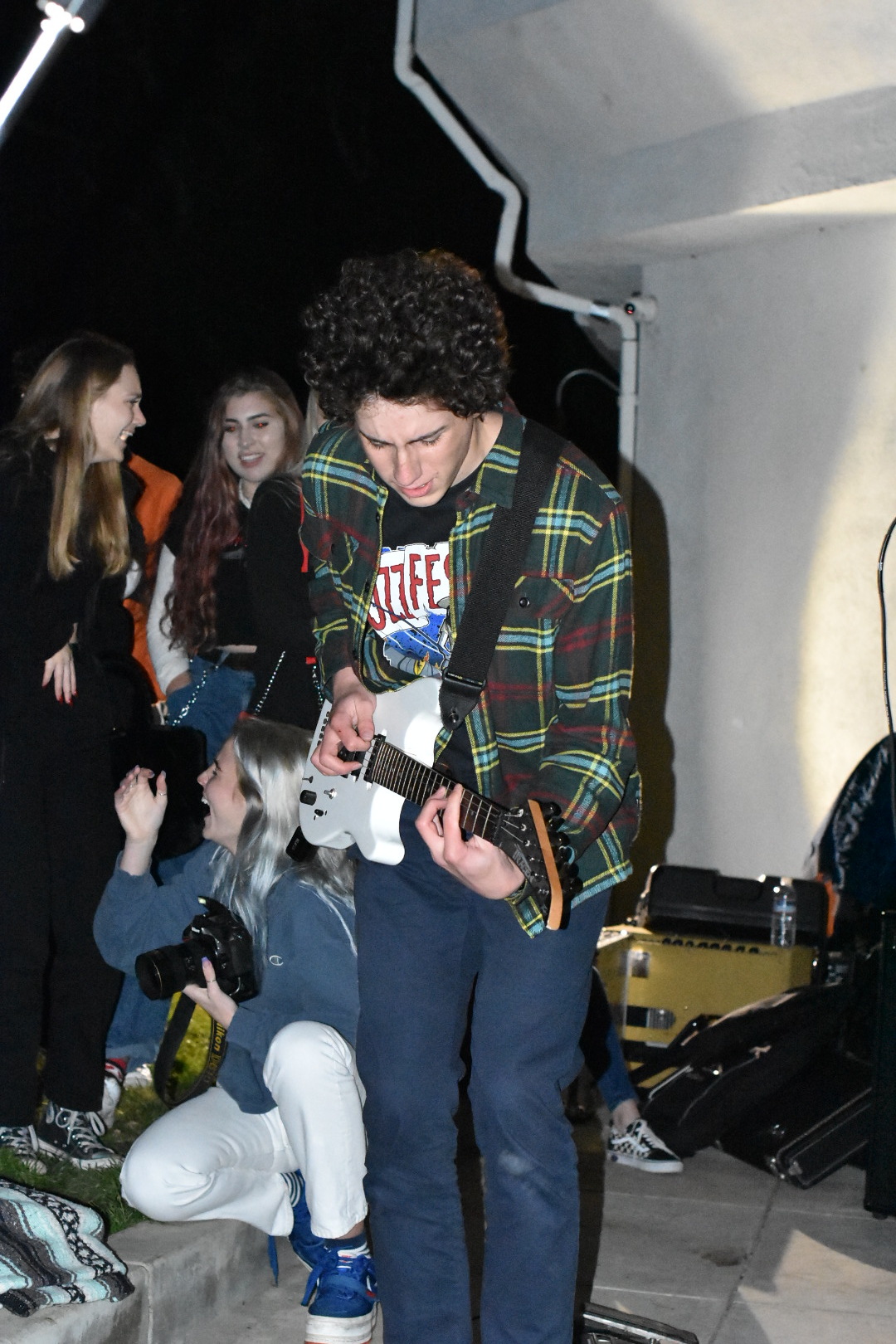Running on Empty Changes the Rules with “Dirty Campaigns”
By Liv Bjorgum
Technically, sonically, and intellectually impressive, Running on Empty’s first song “Dirty Campaigns” reworks the rock genre, giving it texture so often forgotten in modern music while addressing our social realities. The five-member band (with Anthony on lead guitar, Ripley on rhythm guitar, Katie on bass, Gavin on drums, and Hope as vocalist) is still in high school, and crafts a song that speaks to both their many influences and youthful ethos. With just one single, Running on Empty has already created a community and a “we” for the band, the generation, and a whole world of change-seekers.
The varying speeds of the song reflect the fluctuations of the world around us, with the single’s steady moments quickly accelerating into rhythmically danceable chaos. The four instruments stand out on their own but work together to complement Hope’s growl. The crescendos they create by building off of each other feel organic, yet the crashing drums, epic guitar playing, and thrumming bass throughline are enough to stand on their own.
From the first listen, one can feel the backyard crush of people dancing that the single is sure to inspire. “Dirty Campaigns” is born from this live show youth culture that the band is so familiar with. Running on Empty has already built up an impressive repertoire of live shows, performing both at local house shows and other venues. The song’s unmatched energy replicates the eternity of youth at a concert in just three minutes and two seconds.
The politically punky lyrics of “Dirty Campaigns” are intentional; drummer Gavin Valladares says the band “hate[s] all the mudslinging and [government] corruption” going on right now. In “Dirty Campaigns,” the band rears up against America’s current injustices, bringing awareness to the change that needs to happen without burdening teenagers with the responsibility of the entire future. Citing a general disdain for present society, Gavin says that “change is needed in a lot of different aspects of the world today [and] we’re not completely sure of what the solution is but it’s coming soon.” Hope sings in her powerful voice that “nobody knows where we’re going to go,” but the destination is certainly forwards, and fiercely at that.
Listeners of “Dirty Campaigns” know that Running on Empty understands their agency. The band’s political consciousness extends beyond their first song; Gavin organized Flawed System Fest to address the undervaluing of kids in the arts, and the band is slated to perform at the Climate Awareness Festival on April 7. Running on Empty does not pretend to have all the answers, but instead shows their understanding of their power by being vulnerable enough to address the fear of the future.
The uncertainty of the future and the constant pressure to make decisions are very personal as well, as Gavin speaks of these in reference to teenagers’ role in their own lives. “The world wants to crush the youth into a perfect little mold and then put them behind a desk and then they’re just another cog in the system,” he says in reference to his festival. The world’s underestimation of the youth has not been merely internalized by the band but rather turned into fuel to guide the future.
Our generation has continually been pressured to become responsible for both ourselves and the rest of the world. However, the single does not wallow in its angst and is far from fatalist. The song may mention the saying that “the good die young,” but in the context of the band, the good are young, and the future is the band’s to write, with “Dirty Campaigns” inaugurating it.
The band’s call to action and identification of the current necessity for change are unique in a first song. Running on Empty runs on an established identity and a worldview significant and important to a whole generation. “Dirty Campaigns” recognizes both the autonomy and responsibility of teenagers right now while also relishing in the freedom of youth. “Dirty Campaigns” is an infectious call to action through its denial of stagnance and recognition of a generation’s power and independence.





